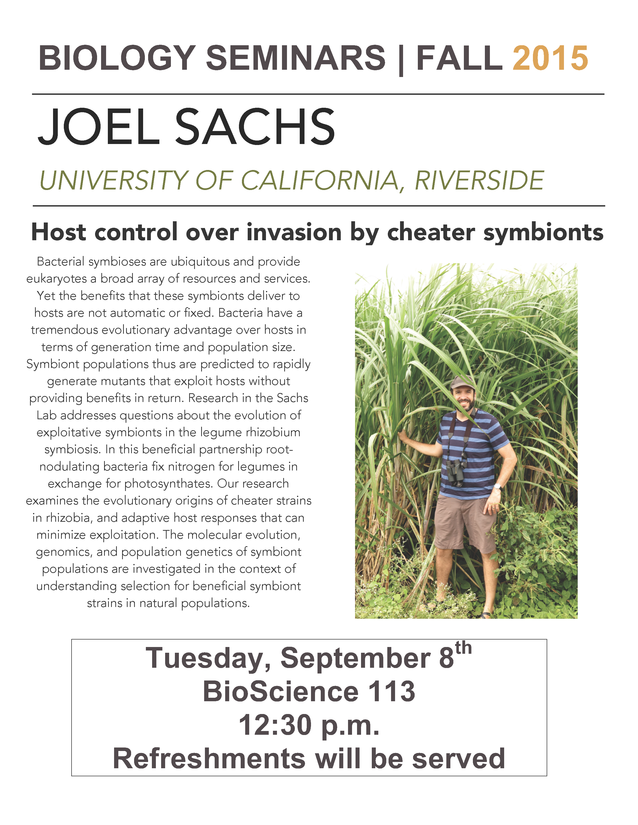
Bacterial symbioses are ubiquitous and provide eukaryotes a broad array of resources and services. Yet the benefits that these symbionts deliver to hosts are not automatic or fixed. Bacteria have a tremendous evolutionary advantage over hosts in terms of generation time and population size. Symbiont populations thus are predicted to rapidly generate mutants that exploit hosts without providing benefits in return. Research in the Sachs Lab addresses questions about the evolution of exploitative symbionts in the legume rhizobium symbiosis. In this beneficial partnership root-nodulating bacteria fix nitrogen for legumes in exchange for photosynthates. Our research examines the evolutionary origins of cheater strains in rhizobia, and adaptive host responses that can minimize exploitation. The molecular evolution, genomics, and population genetics of symbiont populations are investigated in the context of understanding selection for beneficial symbiont strains in natural populations.
